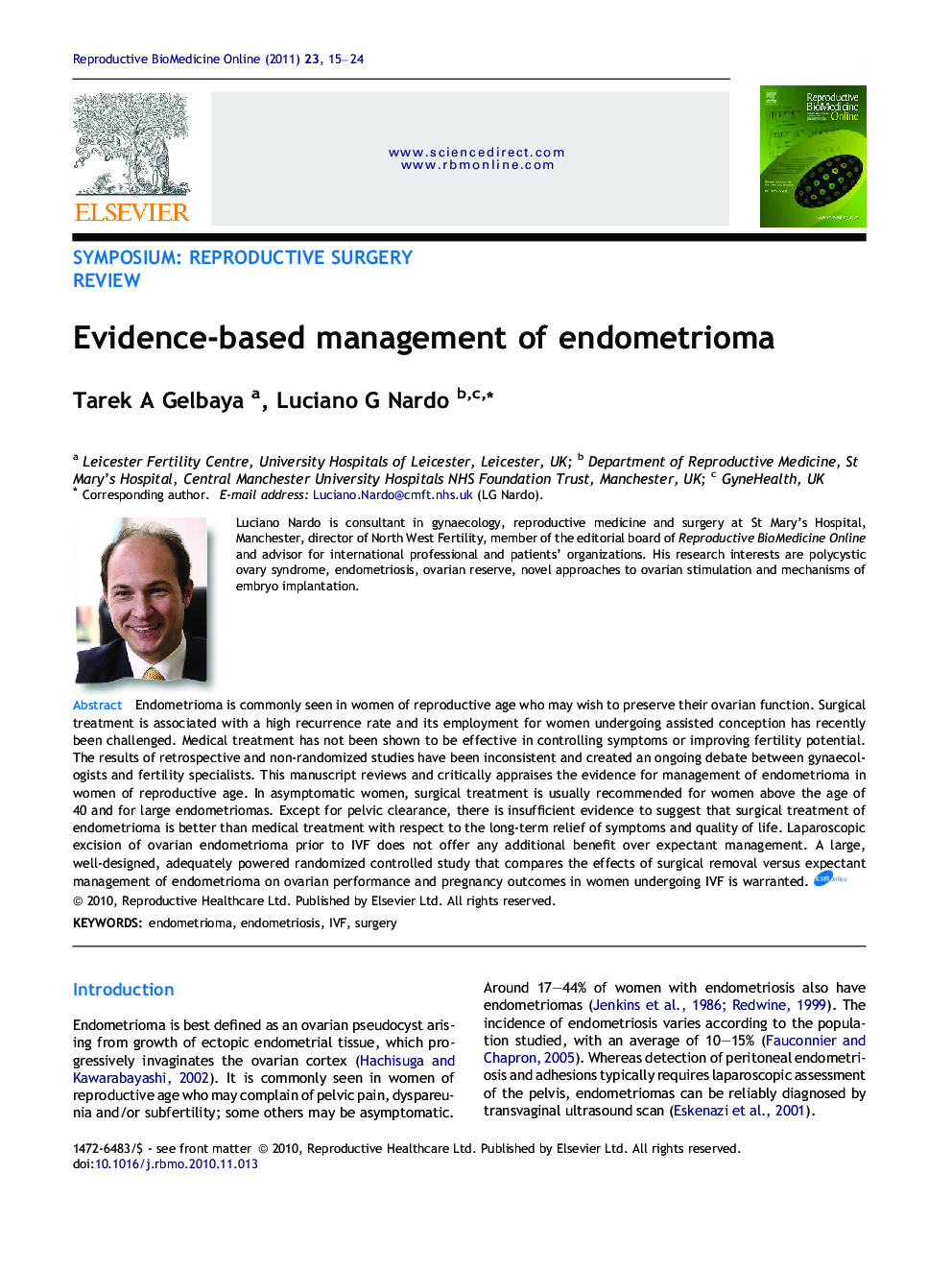| Article ID | Journal | Published Year | Pages | File Type |
|---|---|---|---|---|
| 3971471 | Reproductive BioMedicine Online | 2011 | 10 Pages |
Endometrioma is commonly seen in women of reproductive age who may wish to preserve their ovarian function. Surgical treatment is associated with a high recurrence rate and its employment for women undergoing assisted conception has recently been challenged. Medical treatment has not been shown to be effective in controlling symptoms or improving fertility potential. The results of retrospective and non-randomized studies have been inconsistent and created an ongoing debate between gynaecologists and fertility specialists. This manuscript reviews and critically appraises the evidence for management of endometrioma in women of reproductive age. In asymptomatic women, surgical treatment is usually recommended for women above the age of 40 and for large endometriomas. Except for pelvic clearance, there is insufficient evidence to suggest that surgical treatment of endometrioma is better than medical treatment with respect to the long-term relief of symptoms and quality of life. Laparoscopic excision of ovarian endometrioma prior to IVF does not offer any additional benefit over expectant management. A large, well-designed, adequately powered randomized controlled study that compares the effects of surgical removal versus expectant management of endometrioma on ovarian performance and pregnancy outcomes in women undergoing IVF is warranted.Endometrioma is commonly seen in women of reproductive age who may wish to preserve their ovarian function. Surgical treatment is associated with a high recurrence rate and its employment for women undergoing assisted conception has recently been challenged. Medical treatment has not been shown to be effective in controlling symptoms or improving fertility potential. The results of retrospective and non-randomized studies have been inconsistent and created an ongoing debate between gynaecologists and fertility specialists. In this manuscript we have reviewed and critically appraised the evidence for management of endometrioma in women of reproductive age. In asymptomatic women, surgical treatment is usually recommended for women above the age of 40 and for large endometriomas. Except for pelvic clearance, there is no evidence to suggest that surgical treatment of endometrioma is better than medical treatment with respect to the long-term relief of symptoms and quality of life. Laparoscopic excision of ovarian endometrioma prior to IVF does not offer any additional benefit over expectant management. A large, well-designed, adequately powered randomized controlled study that compares the effects of surgical removal versus expectant management of endometrioma on ovarian performance and pregnancy outcomes in women undergoing IVF is warranted.
